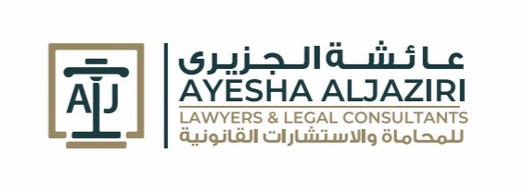Starting an educational institution in Dubai is an exciting prospect—but it is also a regulated activity with precise legal, licensing, and compliance milestones. As Ayesha Aljaziri Lawyers & Legal Consultants, Dubai’s premier full-service law firm, we guide founders, investors, school operators, and training providers through each step of the journey. Our multilingual lawyers in Dubai provide trusted legal solutions tailored to the education sector, and because we hold full rights of audience before all UAE courts, we can support you end-to-end—from early feasibility and licensing through ongoing regulatory compliance, contracts, and, where necessary, dispute resolution.
- Launching an educational institution in Dubai requires approvals from the Knowledge and Human Development Authority (KHDA) for private education in the emirate, and—where applicable—the Ministry of Education (MoE) and its federal accreditation bodies.
- Licensing generally involves a staged application with a detailed business plan, feasibility analysis, curriculum outline, governance structure, and facilities compliance evidence.
- Hiring and HR policies must meet statutory and KHDA/MoE requirements, including teacher qualifications, safeguarding protocols, and background checks.
Understanding the Landscape: Types of Educational Institutions

Dubai hosts a diverse education ecosystem—private K-12 schools, early learning centres, universities and branch campuses, vocational institutes, and professional training centres. Each category is subject to specific approvals and quality standards; getting the categorization right at the outset will shape your licensing pathway, compliance obligations, and timelines.
Private Schools
Private schools in Dubai deliver a range of curricula (for example, British, American, IB, and others). KHDA supervises quality and approves key operational aspects such as fees, governance, and educational outcomes. Strong schools typically combine robust academics with safeguarding policies, transparent parent communications, and continuous improvement driven by stakeholder feedback.
Higher Education and Training Providers
Universities and higher education providers in Dubai operate within a federal framework overseen by the MoE and its accreditation bodies, alongside emirate-level permissions. Professional and vocational training centres (including short courses and workforce skills) also require the correct activity classification and education permits. When planning, consider whether your model involves degree programmes, professional certificates, corporate training, or blended learning; the approvals, faculty credentials, facilities, and QA systems will differ accordingly.
Regulatory Bodies You Must Know
Knowledge and Human Development Authority (KHDA)
KHDA regulates private education providers in Dubai. For schools and many training providers, KHDA is your day-to-day regulator for licensing, quality assurance, fee approvals, inspections, and community engagement (including parent/student surveys). A compelling application aligns your mission, curriculum, staffing, facilities, and governance with KHDA’s standards and Dubai’s broader education goals.
Ministry of Education (MoE)
The MoE sets federal education policy and—through its accreditation bodies—oversees higher education institutions and academic programme accreditation. If your venture is a university or offers degrees, expect MoE oversight on academic standards, faculty qualifications, programme design, and quality assurance mechanisms.
The Licensing Roadmap
1) Choose the Right Legal Structure and Jurisdiction
You will typically establish a legal entity before (or alongside) your education licence application. Common options include a mainland limited liability company (LLC) licensed through Dubai Economy & Tourism (DET) or an entity in a relevant free zone (for example, an academic or knowledge-sector free zone). The choice affects ownership rules, permissible activities, office or campus requirements, and visa quotas. Our corporate lawyers in Dubai help you compare structures, draft constitutional documents, and secure trade name reservation and initial approvals.
2) Business Plan and Feasibility Study
KHDA (and, where relevant, MoE) expects a well-researched business plan. At a minimum, address: your educational philosophy and curriculum model; market need and competitive positioning; governance and leadership; staffing plans and teacher credentialing; facilities specifications (including capacity and accessibility); financial projections; and risk management. A credible feasibility study will include realistic enrolment assumptions, tuition strategy, and sensitivity analysis so regulators can see viability and student welfare safeguarded.
3) Facilities, Health & Safety, and Accessibility
Premises must meet building, zoning, and safety standards. Expect approvals and inspections related to fire and life safety, health and sanitation, and age-appropriate facilities. Many operators coordinate with Dubai Municipality and Dubai Civil Defense for fit-out and safety sign-off. If you operate a school clinic or provide health services on campus, you may need additional healthcare compliance. A compliant lease (with proper registration) and landlord approvals are essential. Our real estate lawyers in Dubai negotiate education-use leases, review building compliance obligations, and align your fit-out contracts with regulatory requirements.
4) Curriculum and Quality Assurance
For KHDA approval, submit a curriculum framework that explains learning outcomes, assessment strategies, inclusion policies, safeguarding, and student wellbeing systems. If you deliver an international curriculum, identify how you will localize content and ensure Arabic, Islamic Education (where applicable), and UAE Social Studies compliance. For higher education, programme accreditation requires clear learning objectives, faculty profiles, research or practice components (as relevant), and a robust academic integrity policy.
5) Governance and Policies
Regulators want to see effective governance: a responsible proprietor or board, defined leadership roles, transparent decision-making, and documented policies. Key documents typically include safeguarding and child protection, anti-bullying, health and safety, data privacy, admissions and fee policies, staff code of conduct, complaints and grievance handling, and academic integrity. Your parent-school contract and staff employment contracts must mirror these policies. Our commercial lawyers in Dubai draft and align contracts, handbooks, and policy suites to regulatory expectations.
6) Staffing, HR Compliance, and Background Checks
Teacher and leadership qualifications must meet KHDA/MoE standards. Expect to verify degrees, teaching credentials, and relevant experience. English-language teaching frequently relies on qualifications such as CELTA/TEFL in addition to degrees. Robust background checks (including criminal record checks) and reference verification are standard, and safeguarding training is essential for anyone working with children. We help structure compliant recruitment processes, visa/work-permit planning, and probation/performance policies. For ongoing HR support, our labour and employment lawyers advise on UAE Labour Law, visas, and employee relations.
7) Financial Controls, Tuition Fees, and Aid
Tuition fees in Dubai’s private sector vary by curriculum, facilities, and value proposition. KHDA typically regulates fee approvals and adjustments, and you must publish fee schedules and refund rules transparently. Build prudent financial controls for fee collection, scholarships or fee remissions, and audit readiness. Clear bursary or financial aid criteria reduce disputes and support equitable access. If you accept instalments or use education financing partners, ensure your arrangements and disclosures are compliant and consumer-friendly.
Critical Compliance Areas Often Overlooked
Safeguarding and Student Welfare: Beyond policy documentation, demonstrate training, incident management protocols, and safe recruitment. Regulators will expect evidence that safeguarding is lived practice in your community.
Data Privacy and Records: Student records, assessment data, and health information must be protected. Implement privacy notices, access controls, and retention schedules aligned with UAE data protection principles. Staff should receive periodic training on confidentiality and secure handling of personal data.
Marketing and Admissions: Ensure fair, accurate marketing and admissions practices. Avoid misleading claims about accreditation or university pathways. Your parent contract should set expectations on conduct, fees, transport, uniforms, assessment, and complaints—drafted in plain language and consistent with regulatory rules.
Intellectual Property and Branding: Protect your school or institute’s name, logo, and original educational materials. Licensing arrangements for third-party curricula or digital platforms should be clear on usage rights and compliance obligations. Our technology, media, and telecommunications team can assist with content licensing and platform agreements.
Step-by-Step: From Idea to Opening
- Vision & Market Fit: Identify your target learners, curriculum, and value proposition; run a feasibility study with realistic enrolment and pricing.
- Entity Setup: Select mainland or free zone; reserve trade name; obtain initial approvals; draft Articles/Memorandum. Our corporate team manages incorporations and shareholder agreements.
- Education Permit Application: Prepare KHDA (and, where applicable, MoE) submissions: business plan, curriculum, governance, staffing, and facility documentation.
- Premises & Fit-Out: Secure a compliant site; obtain design and safety approvals; complete inspections; finalize capacity and age-range permissions.
- Recruitment & Training: Hire qualified leadership and teachers; complete background checks; implement safeguarding and academic QA training.
- Policies & Contracts: Finalize parent contracts, employment agreements, supplier contracts, and policy suite with legal review.
- Fee Approval & Admissions: Align fee schedule with KHDA processes; publish transparent admissions criteria; set up financial controls.
- Soft Launch & Compliance Checks: Test systems, run emergency drills, verify record-keeping, and conduct internal audits before opening.
How Our Law Firm Supports Education Clients
Our comprehensive legal services cover corporate setup, governance, contracts, employment, real estate, compliance, and dispute management for education providers. As a full-service law firm in Dubai, we collaborate across 14 practice areas to deliver integrated, sector-specific advice. Because we have full rights of audience before all UAE courts (civil, Sharia, commercial, and appellate), we can represent you without external counsel if a dispute arises over leases, vendor contracts, employment claims, or regulatory decisions. When early resolution is preferred, our arbitration lawyers in Dubai and litigation team help protect your institution’s continuity and reputation.
Frequently Asked Questions
What are the core legal requirements to start an educational institution in Dubai?
You will need an appropriate legal entity, KHDA (and where applicable MoE) approvals for your education activity, a compliant campus or training facility that passes health, safety, and capacity checks, qualified staff with background clearances, and published policies and fee schedules. Your application must be supported by a business plan and curriculum framework that demonstrate viability and quality.
Do I need a specific licence category?
Yes. Your trade licence should include the correct education-related activity, and you must obtain the corresponding KHDA education permit. Universities and degree-granting programmes fall under additional MoE frameworks. Selecting the wrong category can delay approvals, so align your legal activity with your educational model from the outset.
What documentation is typically required?
Expect to submit a business plan and feasibility study, governance and policy documents (safeguarding, H&S, data privacy, admissions, fee policy), curriculum details, faculty qualifications, premises documents (title/lease, fit-out approvals), and financial forecasts. Regulators may request further evidence during review.
Can foreign investors establish education providers in Dubai?
Yes. Foreign ownership rules vary depending on the jurisdiction (mainland or free zone) and activity. Many founders proceed without a local partner, but the structure should be evaluated case-by-case. We advise on the optimal route, shareholder protections, and regulatory representations to ensure compliance and control.
How are tuition fees regulated?
KHDA typically regulates initial fee approvals and subsequent adjustments. Institutions must communicate fee policies, refunds, and payment schedules clearly to parents and learners and keep records consistent with regulatory standards.
Can I change the type or scope of my institution later?
Yes, but material changes—curriculum, capacity, age range, or institution type—require updated approvals. Submit revised plans to KHDA (and MoE where relevant), ensure facilities remain compliant, and update contracts and policies accordingly.
Why Choose Ayesha Aljaziri Lawyers & Legal Consultants

We are a Dubai-based, multilingual team delivering comprehensive legal services to education operators across the UAE. Our expertise spans corporate structuring, real estate and leasing, labour and employment, commercial contracts, and dispute resolution—exactly the disciplines an education project needs. We offer fast turnaround and bespoke advisory packages, backed by full rights of audience before all UAE courts. Explore related capabilities here: commercial contracts for education providers, campus and lease negotiations, and education HR and teacher visas. For strategic disputes or regulatory appeals, see our UAE court representation page.
Ready to proceed? Speak with our experienced lawyers in Dubai for a clear, step-by-step plan to license, open, and operate your school, university branch, or training centre in full compliance with UAE regulations. Contact us to schedule a consultation today.








